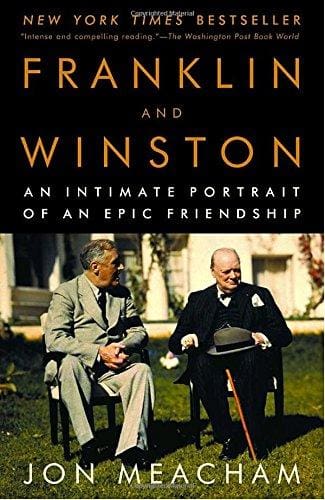Franklin and Winston
Their first meeting, at a London banquet in 1918, was not a success. Winston Churchill, the 43-year-old former first lord of the Admiralty, would not remember meeting Franklin Roosevelt that night. Roosevelt, 36, the assistant secretary of the Navy, disliked Churchill’s brusqueness. Their next contact was not until September 1939, when Roosevelt wrote Churchill on his return to the Admiralty following the German invasion of Poland. Over the next five years they would exchange nearly 2,000 letters — Roosevelt’s last was written on April 11, 1945, the eve of his death. ”Roosevelt was the better politician, Churchill the warmer human being,” Jon Meacham writes in ”Franklin and Winston,” his very readable account of ”the most fascinating friendship of modern times.” Both men liked tobacco, strong drink, battleships, pageantry, high office and hearing themselves talk. Both were deeply involved in strategic decisions, and took a strong hand running the military. ”They were accustomed to power,” Meacham writes. ”Governing was what Churchills and Roosevelts did.” Meacham, the managing editor of Newsweek, uses several previously unavailable sources, including the World War II papers of Pamela Churchill Harriman, then married to Churchill’s son, Randolph, and he interviewed a number of those still living who spent time in the two men’s company. Written with grace and conviction, his portrait of this epic friendship focuses on the elements of character and fortitude that bonded these two leaders together, and ”proves it does matter who is in power at critical points
1 in stock


